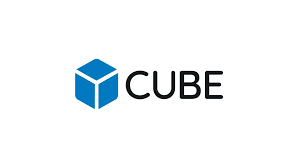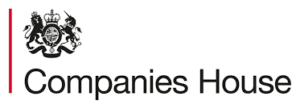CUBE Global: Leading Regulatory Technology for Financial Compliance

Financial institutions face unprecedented regulatory complexity. As supervisory bodies worldwide issue thousands of new compliance requirements annually, manual tracking systems can no longer keep pace. CUBE global, a London-based regulatory technology company founded in 2011, has positioned itself as a leading solution provider in the growing RegTech sector, serving over 1,000 financial institutions through its AI-powered compliance platform.
The firm’s RegPlatform monitors regulatory developments across 180+ jurisdictions, covering more than 10,000 regulatory issuing bodies in 80 languages. From major financial centres including London, New York, and Singapore to emerging markets across Asia, Latin America, and Africa, CUBE global delivers automated regulatory intelligence that transforms compliance obligations into strategic business insights.
Rising Regulatory Complexity Drives RegTech Adoption
Large international banks must simultaneously track compliance requirements from hundreds of different supervisory bodies. A single global financial institution might hold licenses in 60 or more jurisdictions, each with distinct rulebooks, update cycles, and enforcement approaches. This creates substantial operational challenges for compliance teams.
Industry data illustrates the scale of the problem. Thomson Reuters estimates global spending on regulatory compliance reached $274 billion in 2024, yet enforcement actions continue to rise. The traditional approach of hiring additional compliance officers to manually review regulatory websites and publications no longer scales effectively as regulatory volumes increase.
This market gap has driven rapid growth in regulatory technology solutions. Rather than expanding headcount, financial institutions increasingly turn to RegTech platforms that automate the discovery, classification, and mapping of regulatory requirements. CUBE global has captured significant market share by offering comprehensive jurisdictional coverage combined with sophisticated workflow automation.
RegPlatform: Core Technology and Capabilities
CUBE’s primary offering centres on its RegPlatform family of products. RegPlatform Enterprise targets multinational financial institutions with complex regulatory footprints spanning multiple jurisdictions and business lines. RegPlatform Intel, launched in 2025, serves mid-market firms requiring similar regulatory intelligence capabilities at lower cost and implementation complexity.
The platform operates through several integrated functions designed to transform regulatory monitoring from reactive to proactive. First, it continuously monitors regulatory sources worldwide, automatically capturing new rules, amendments, guidance documents, and supervisory statements as regulatory bodies publish them. This monitoring spans more than 10,000 issuing bodies, including central banks, securities regulators, banking supervisors, conduct authorities, and specialized agencies.
Second, intelligent filtering technology applies customer-specific profiles to surface only relevant regulatory updates. Not every regulatory development affects every institution. A retail bank operating solely in the UK does not require alerts about derivatives regulations from Hong Kong’s Securities and Futures Commission. CUBE’s profiling technology reduces noise and allows compliance teams to focus resources on material requirements affecting their specific business model.
Third, the platform maps regulatory obligations to internal control frameworks. When regulatory bodies issue new requirements, the system automatically identifies which policies, procedures, and business units require attention. This automated linkage makes compliance obligations visible across the organization rather than siloed exclusively within the compliance function.
Fourth, integration capabilities allow firms to embed regulatory intelligence into existing governance, risk, and compliance systems. Through modules including RegConnect, CUBE data flows seamlessly into policy management platforms, audit workflows, risk registers, and board reporting tools. This integration ensures regulatory intelligence becomes operational rather than remaining in standalone systems.
Strong Growth Trajectory and Strategic Expansion
CUBE global has demonstrated substantial business growth over recent years. The company reported more than doubling both revenue and employee numbers over the previous 12 months. This expansion was supported by strategic investment from Hg Capital in 2024, a private equity firm with significant experience in European software businesses.
In May 2025, CUBE opened new global headquarters at Tower 42 in London’s financial district and launched the RegBrain AI Lab, a dedicated facility for developing artificial intelligence applications in regulatory compliance. These investments signal continued commitment to technology development and market expansion. The company also announced plans to create 200 jobs over the following 12 months, with half expected to be UK-based positions.
Strategic acquisitions have accelerated growth. In May 2024, CUBE global acquired Thomson Reuters’ Regulatory Intelligence and Oden businesses, significantly expanding its customer base and regulatory content capabilities. The acquisition added approximately 250 regulatory subject matter experts and legal professionals to CUBE’s team. In June 2025, CUBE acquired Acin, a London-based operational risk AI provider, further extending its compliance and risk management capabilities.
The client base spans multiple financial services sectors including retail and commercial banking, investment banking, asset management, insurance, and payment services. While CUBE does not routinely disclose specific client names, the company states its platform is used by institutions operating in every major financial centre globally, including several systemically important financial institutions.
Competitive Position in Growing RegTech Market
The regulatory technology sector has expanded rapidly. Industry analysts project the global RegTech market will exceed $16 billion in annual revenue by 2026, growing at more than 20% compound annual growth. This expansion is driven by increasing regulatory complexity, rising compliance costs, and widespread recognition that manual compliance processes cannot scale to meet current demands.
CUBE competes in a fragmented market with several established players. Competitors include Compliance.ai, which focuses heavily on US financial regulations, Ascent RegTech, known for machine learning-powered obligation extraction, and traditional information providers including Wolters Kluwer and LexisNexis that have added regulatory tracking capabilities. The largest financial institutions also build proprietary internal systems, though smaller firms typically lack resources for bespoke development.
CUBE global’s competitive positioning emphasizes breadth of jurisdictional coverage and depth of workflow automation. The company claims more comprehensive global reach than specialist competitors focused on specific markets, and more sophisticated integration capabilities than traditional legal publishers moving into technology.
Implementation Requirements and Considerations
Adopting regulatory technology involves substantial organizational change beyond software deployment. Successful implementations require workflow redesign, technical system integration, and cultural adaptation within compliance teams.
Integration proves particularly critical. Regulatory intelligence delivers value only when embedded into operational decision-making processes. This typically requires connecting CUBE’s platform to existing technology infrastructure including governance systems, policy repositories, risk management tools, and audit platforms. The technical integration work can be substantial, especially in institutions with legacy systems or complex IT architectures.
Cultural factors merit careful attention. Compliance professionals accustomed to manual processes may initially resist automation, whether from skepticism about accuracy, concerns about job security, or organizational inertia. Effective change management becomes as important as technical implementation for achieving adoption and realizing value.
Coverage accuracy and depth require ongoing validation. While CUBE global monitors 180+ jurisdictions, monitoring quality inevitably varies by market. Obtaining timely, accurate translations of regulatory updates from emerging markets demands significant linguistic and regulatory expertise. Financial institutions operating in less mainstream jurisdictions should verify coverage quality and update frequency before committing to enterprise deployments.
Technology cannot replace human judgment in compliance decision-making. Automation excels at identification and classification of regulatory requirements but interpretation remains fundamentally a human task. Determining whether new requirements apply to specific products, designing appropriate controls, and making risk-based implementation decisions still require expert oversight. Institutions that treat RegTech as a complete solution rather than a powerful tool risk compliance failures.
Strategic Value Beyond Cost Reduction
The value proposition of regulatory technology extends beyond operational cost reduction. While efficiency gains matter, particularly for mid-sized institutions with constrained compliance budgets, strategic benefits can prove more significant for competitive positioning.
Early awareness of regulatory changes enables faster product development and market entry. Comprehensive mapping of requirements to internal controls reduces operational risk and strengthens relationships with supervisory authorities. Enhanced regulatory intelligence supports more informed strategic planning and resource allocation across the enterprise.
Leading institutions increasingly view compliance technology as a source of competitive advantage rather than merely a cost management tool. In markets where regulatory complexity creates barriers to entry, superior compliance capabilities enable business opportunities that competitors cannot efficiently pursue without similar investments in regulatory intelligence infrastructure.
Market Outlook and Future Developments
Regulatory complexity shows no signs of diminishing across global financial services. New requirements continue emerging around environmental, social and governance reporting, climate risk disclosure, operational resilience, cyber security, and data privacy. Cross-border supervision grows more sophisticated. Technology regulation, particularly concerning artificial intelligence and crypto assets, adds further complexity layers.
This environment favors firms that can efficiently process regulatory information at scale. Manual approaches become increasingly untenable as regulatory volumes and complexity continue growing. RegTech adoption will likely accelerate, though questions remain about which business models and technologies will ultimately dominate the sector.
CUBE global appears well positioned for continued expansion. Its client base is substantial and growing, revenue growth remains strong, and investor backing provides capital for further platform development. The company’s broad jurisdictional coverage and focus on workflow integration address genuine client needs in an expanding market.
For financial institutions evaluating regulatory technology options, CUBE represents an established player with proven scale and comprehensive capabilities. Its platform offers extensive regulatory monitoring and sophisticated automation, though successful implementation demands significant organizational commitment beyond technology deployment.
What remains clear is that regulatory complexity will continue increasing across financial services. Institutions require better tools to manage this burden effectively, and CUBE global has established itself as a leading solution provider in this essential and growing market.





